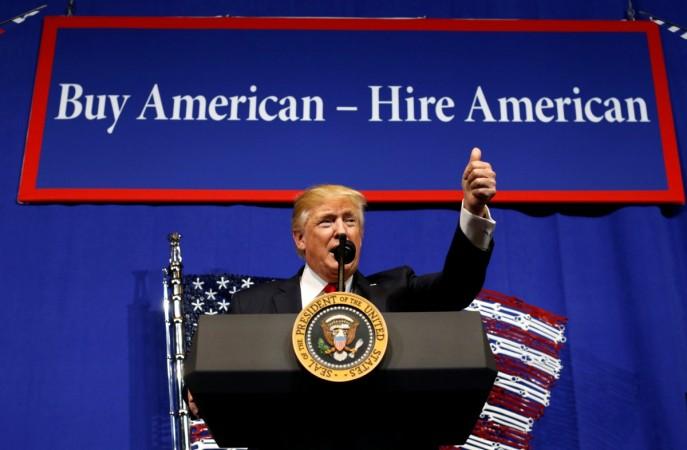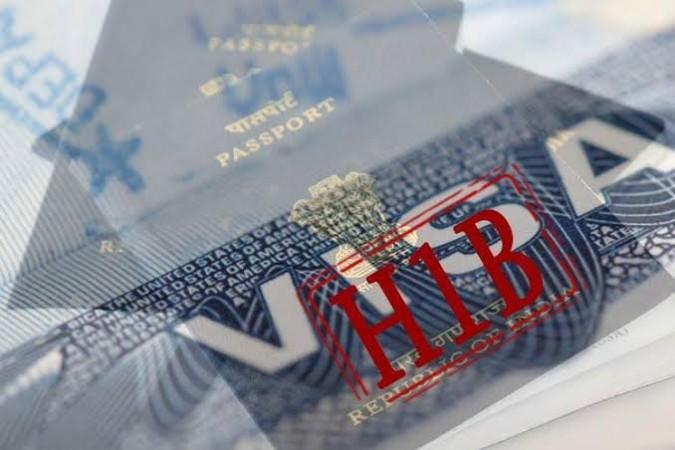Traditionally, the Indian IT service industry secures more H-1B work visas to send skilled talent from India to work on both short and long-term client projects in the US. However, in the recent past, there has been an evident increase in the denial rate of H-1B visas, following the Donald Trump administration's 'Buy American, Hire American' policy.

The increased scrutiny for fresh H1-B visa applications and extensions has resulted in a spike of visa denial rates from 6 percent in 2005 to 24 percent in 2019. The Trump administration has been favouring US technology firms over Indian firms, to issue work permits for nearly 85,000 tech workers.
Is this "the solution" to address US economic woes?
Tech giants such as Google, Facebook, Amazon, Apple, and the likes were among the top 10 recipients of the H1-B visas, and Indian workers account for over 70 percent of the H1-B recipients, according to the US Citizenship and Immigration Services. The crackdown on H1-B work visas will undoubtedly hurt the US economy, instead of promoting economic growth. Shutting doors to recruiting immigrants and skilled Indian nationals working in the US on H1-Bs will not necessarily contribute to driving the employment of American workers.
The tech skill gap is one major issue that needs to be addressed by the Trump administration to train and re-train skilled workers in the US, to be able to overcome the unemployment and underemployment issues of the nation.

A National Bureau of Economic Research (NBER) paper, titled 'Give Me Your Tired, Your Poor, Your High-Skilled Labor: H-1B Lottery Outcomes and Entrepreneurial Success' suggests that "The current crackdown on H-1B visas will likely make it more difficult for startups to hire the desired workers and might reduce innovation and patenting." The study further reveals, "Startup firms that receive H-1B visas are able to better innovate, secure additional venture capital funding, exit through a public offer (IPO), file for more patents and thus generate significant economic value."
USCIS to stop asking detailed information from H1-B visa workers
In a recent move by the USCIS, it said it will stop asking for detailed information from H1-B visa employees sent to the US from Indian IT firms for short-term client projects, as the work permits will now be granted for a period approximated for project completion, which will be lesser than the mandated three-years.
Else H1-B visa applications will be denied altogether, on non-provision of a detailed itinerary of the client details in the US who need skilled services from H1-B immigrant workers. As a result, the 2018 Contract and Itinerary Memorandum, requiring companies to provide detailed employee's itinerary within 90 days is repealed on the grounds of settlement between the USCIS and ITServe Alliance, an IT industry body based in the United States.

A news report revealed recent H1-B visa numbers by USCIS, showing nearly 275,000 unique registrations being submitted in the initial FY21 registration period, of which 81 percent of the submitted registrations were potential beneficiaries and applicants from India (67.7%) and China (13.2%). The US Department of Labour in 2019 revealed that Apple Inc.is the largest beneficiary, with almost 2,300 H-1B visa recipients, closely followed by Google with 900 H1-B visa workers recruited by the tech giant.
In the wake of the Covid-19 pandemic, most IT organizations are e-boarding permanent employees and contract hire has been stalled for an indefinite period of time, until operations resume back to normalcy again, perhaps in 2021.
US Tech industry uproars disappointment over Trump administration's proclamation
Expressing disappointment over US President Donald Trump's proclamation of temporarily suspending foreign work visas including H-1B, Google CEO Sundar Pichai took to Twitter saying, "Immigration has contributed immensely to America's economic success, making it a global leader in tech, and also Google the company it is today." He further said that Google will "continue to stand with immigrants and work to expand opportunity for all."
Immigration has contributed immensely to America’s economic success, making it a global leader in tech, and also Google the company it is today. Disappointed by today’s proclamation - we’ll continue to stand with immigrants and work to expand opportunity for all.
— Sundar Pichai (@sundarpichai) June 22, 2020
Other tech giants such as Amazon and Twitter also condemned the Trump administration's move to ban the issuance of H-1B highly-skilled worker visas, along with seasonal worker H-2B visas, J, and L visa programs that recruit foreign workers in skilled roles.
A Twitter spokesperson tweeted, "This proclamation undermines America's greatest economic asset: its diversity. People from all over the world come here to join our labor force, pay taxes, and contribute to our global competitiveness on the world stage."
Statement on US high-skilled immigration proclamation:
— Twitter Public Policy (@Policy) June 22, 2020
"This proclamation undermines America’s greatest economic asset: its diversity. People from all over the world come here to join our labor force, pay taxes, and contribute to our global competitiveness on the world stage.
The temporary ban proclamation by the Trump administration on foreign worker visas will come into effect from June 24 and will expire on December 31, 2020. However, this order will not be implied for "spouse or child of a US citizen, permanent resident, those involved with the food supply chain, those whose entry is required in the national interest".
While the suspension of foreign work visas to include H1-Bs, H-2Bs, J, and L1 visas, is a temporary solution according to the Trump government's proclamation yesterday. Does the ailing US economy seek a temporary solution from the Trump administration to address the nation's talent crisis, challenges regarding the scarcity of skilled labour, unemployment, and underemployment woes?
Will Trump's proclamation help the US economy survive and revive itself without skilled foreign labour contribution and Indians on H1-Bs? Only time will tell if this move will work in favour of an average American worker and the US economy, or not. Will the Trump administration's anticipated dream of increasing American workers' employment, by shutting doors to immigrants during the Covid-19 times bring results?
Aaron Levie, Co-founder of Enterprise Cloud Software Box tweeted, "If you truly believe in "America First" then you'd want to bet on people that have uprooted their lives to come to America to study and contribute research, help us innovate, join our workforces, or start new companies. That's as America First as it gets."
If you truly believe in “America First” then you’d want to bet on people that have uprooted their lives to come to America to study and contribute research, help us innovate, join our workforces, or start new companies. That’s as America First as it gets.
— Aaron Levie (@levie) June 23, 2020
This is unbelievably bad policy on every level. It will only mean more jobs move outside the US, and in no way makes America better or more competitive. https://t.co/hGVzhkXHuX
— Aaron Levie (@levie) June 22, 2020
Levie further added, "When you restrict immigration, the jobs still get created, just somewhere else. And later down the road, when those individuals create the next Google, it won't be here."

















